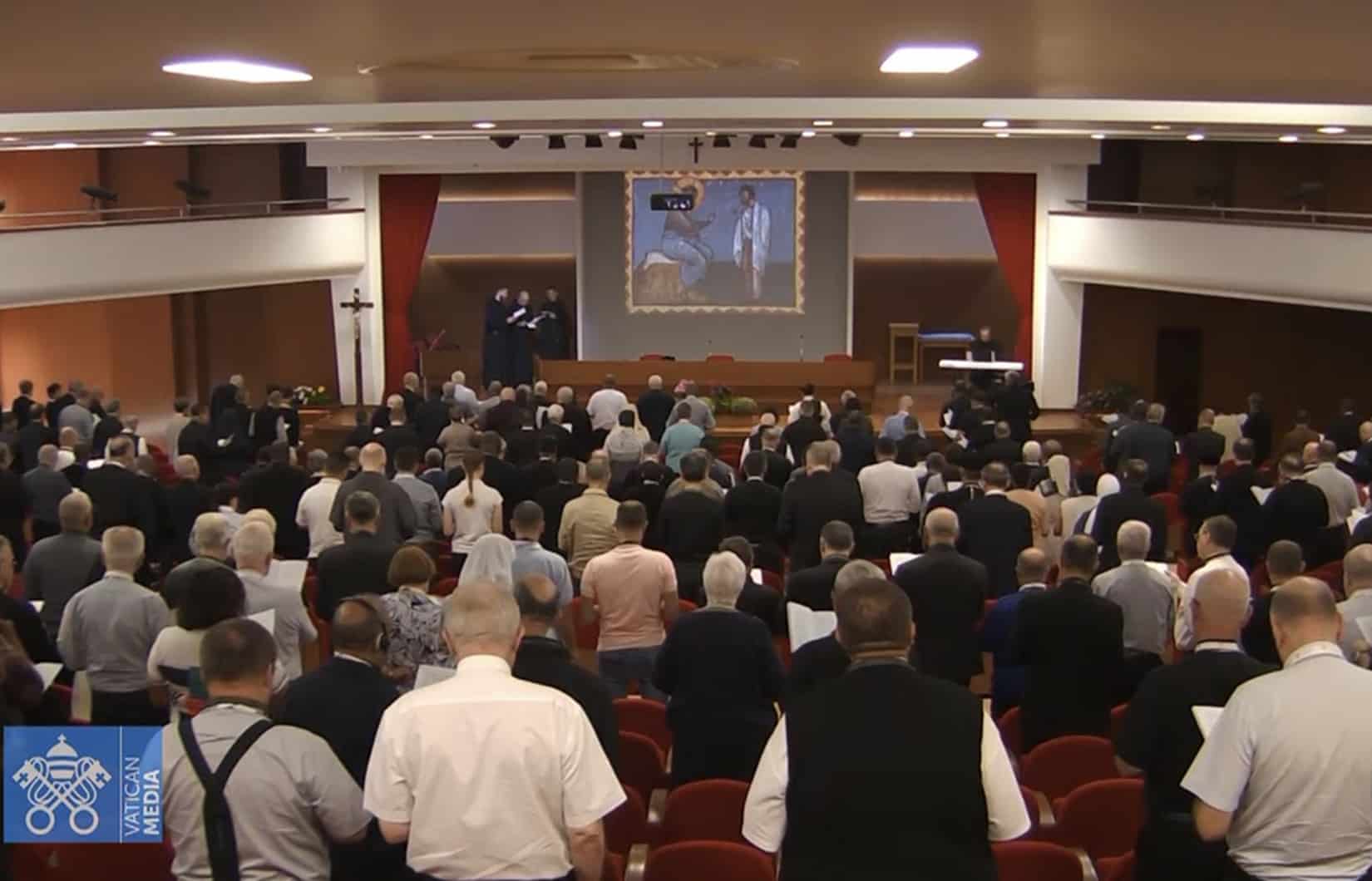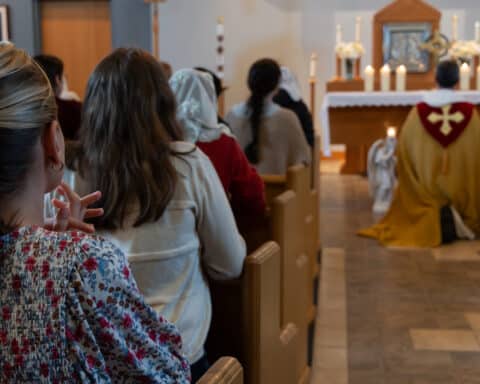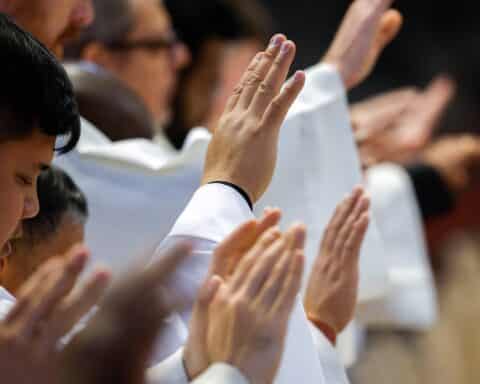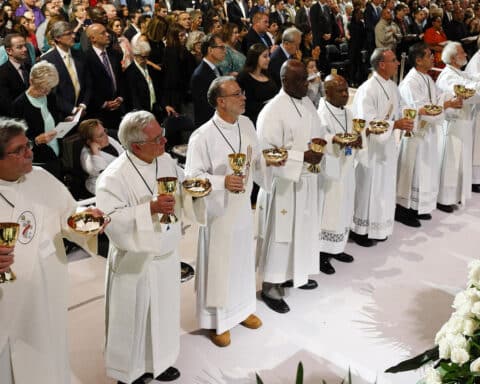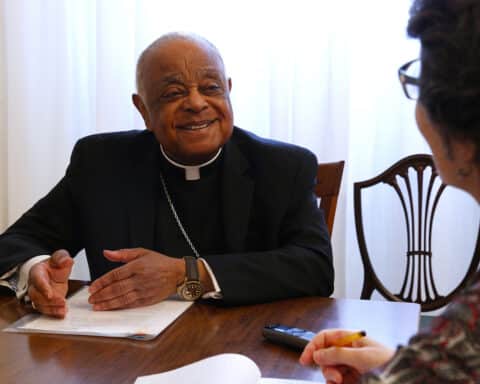ROME (CNS) — Knowing they would be wrangling with different opinions and that Catholics around the world had different hopes and fears for their work, the 364 full members of the assembly of the Synod of Bishops gathered for a retreat.
At a large complex in Sacrofano, about 20 miles north of Rome, Dominican Father Timothy Radcliffe and Benedictine Mother Maria Ignazia Angelini were asked to provide the spiritual foundations for the synod’s work over the course of the retreat Oct. 1-3. Pope Francis did not attend the retreat.
“The risk for us, men and women of the church, is to proceed from our inner, objective, pressing navigation systems” with all the potential danger signs marked out, Mother Angelini said during lauds Oct. 1. But without prayer, “we lose the horizon.”
“We are not synodal church first and foremost because we face each other and exchange opinions, much less because we talk over each other,” but because “we draw on the same foundation,” that of faith and openness to the Holy Spirit, she said.
Father Radcliffe, former head of the Dominican order, told synod members they were at the retreat “because we are not united in heart and mind” and yet are called through the synod to find ways to embrace “the Catholic both/and” in responding to the Holy Spirit and to the hopes and fears of Catholics around the world.
“The vast majority of people who have taken part in the synodal process have been surprised by joy,” he said, because for many of them, “it is the first time that the church has invited them to speak of their faith and hope.”
But there are conflicting expectations, Father Radcliffe said. “Some hope that the church will be dramatically changed, that we shall take radical decisions, for example about the role of women in the church. Other are afraid of exactly these same changes and fear that they will only lead to division, even schism.”
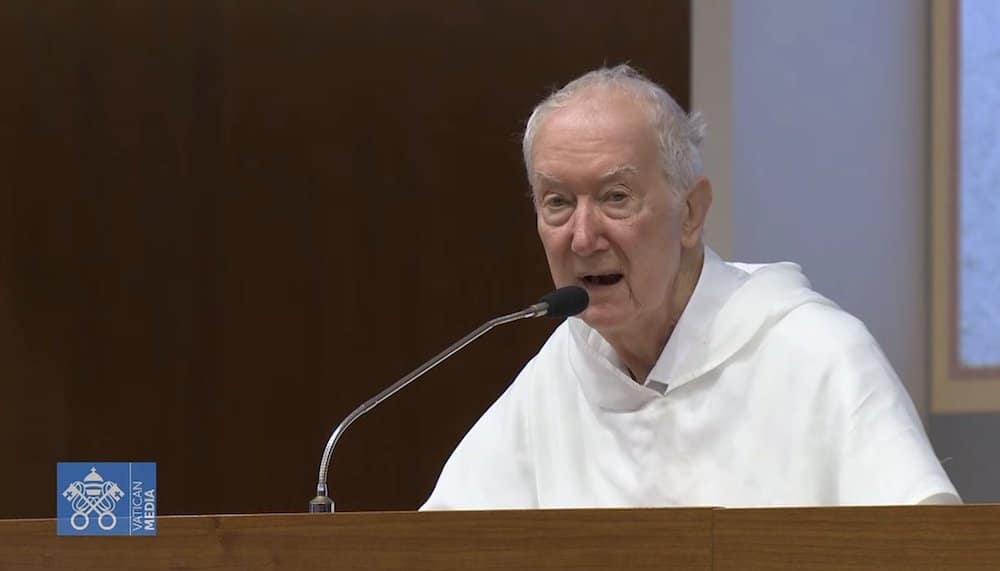
Giving people hope
Synod participants, he said, need to ask the Lord to vanquish their fears and give them hope, “the hope that this synod will lead to a renewal of the church and not division; the hope that we shall draw closer to each as brothers and sisters.”
The ultimate source of hope for Catholics is the Eucharist, he said. In that sense, he said, synod participants are gathered “like the disciples at the Last Supper, not as a political debating chamber competing to win.”
“At the Last Supper, there seemed to be no future. All that lay ahead apparently was failure, suffering and death,” he said. “And in this darkest moment, Jesus made the most hopeful gesture in the history of the world: ‘This is my body, given for you. This is my blood poured out for you.’ This is the hope that calls us beyond all division.”
In his second meditation Oct. 1, Father Radcliffe said the synod members cannot ignore the clerical sexual abuse crisis, which “has been the last straw” for many Catholics. “They have packed their bags and gone.”
“God remains in our church, even with all the corruption and abuse. We must therefore remain,” he said. “But God is with us to lead us out into the wider open spaces of the kingdom. We need the church, our present home for all its weaknesses, but also to breathe the Spirit-filled oxygen of our future home without boundaries,” the promised kingdom of God.
Different understandings of the church “tear us apart today,” the Dominican said. “For some it is defined by its ancient traditions and devotions, its inherited structures and language, the church we have grown up with and love.”
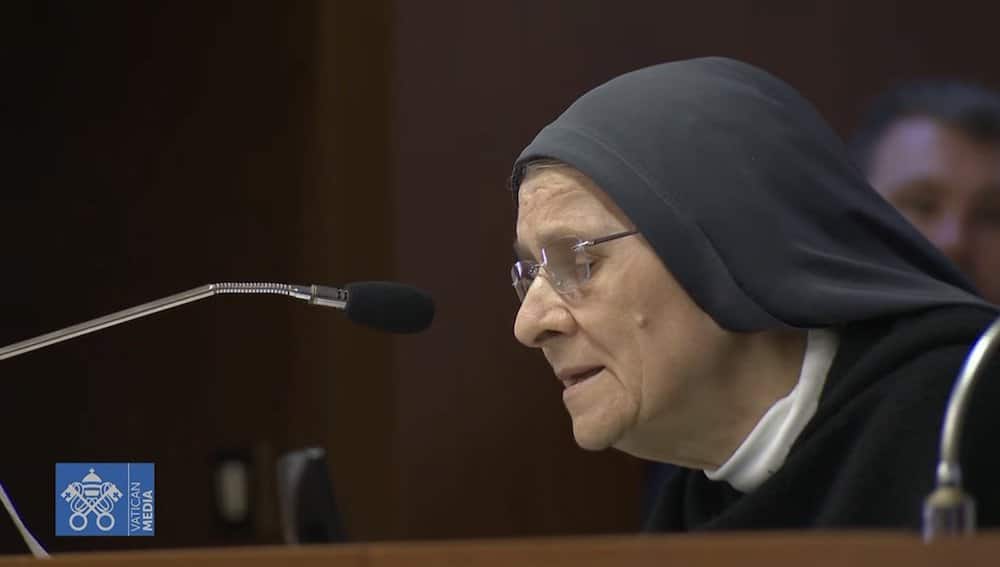
Losing members of the Church
“For others, the present church does not seem to be a safe home. It is experienced as exclusive, marginalizing many people, women, the divorced and remarried,” he said.
The synod working document also mentions “gay people and people in polygamous marriages,” he continued. “They long for a renewed church in which they will feel fully at home, recognized, affirmed and safe.”
Focusing too much on what it has meant to be Catholic, “we risk becoming a sect,” he said, but “if we just stress the adventure toward an identity yet to be discovered, we risk become a vague Jesus movement.”
Most Catholics are “nourished by beloved traditions and devotions. If they are lost, we grieve,” he said. “But, also, we must remember all those who do not yet feel at home in the church: women who feel that they are unrecognized in a patriarchy of old white men like me! People who feel that the church is too Western, too Latin, too colonial. We must journey toward a church in which they are no longer at the margin but in the center.”
In his meditations Oct. 2, Father Radcliffe focused on the Gospel call for Jesus’ disciples to be friends. “This synod,” he said, “will be fruitful if it leads us into a deeper friendship with the Lord and with each other.”
“In the synod we have the creative task of making improbable friendships, especially with people with whom we disagree,” he told synod members. “If you think that I am talking nonsense, come and befriend me!”
The conversations will not lead to friendship, he said, if they are phrased like “‘Why do you hold these ridiculous views on liturgy?’ or ‘Why are you a heretic or a patriarchal dinosaur?’ or ‘Why are you deaf to me?'”
Instead, he said, they must seek to understand, “Where are you? What are you worried about?”
“If we really listen, our ready-made answers will evaporate,” Father Radcliffe said. “If I do not know how to respond to my sister or brother’s pain or puzzlement, I must turn to the Lord and ask for words. Then the conversation can begin.”

